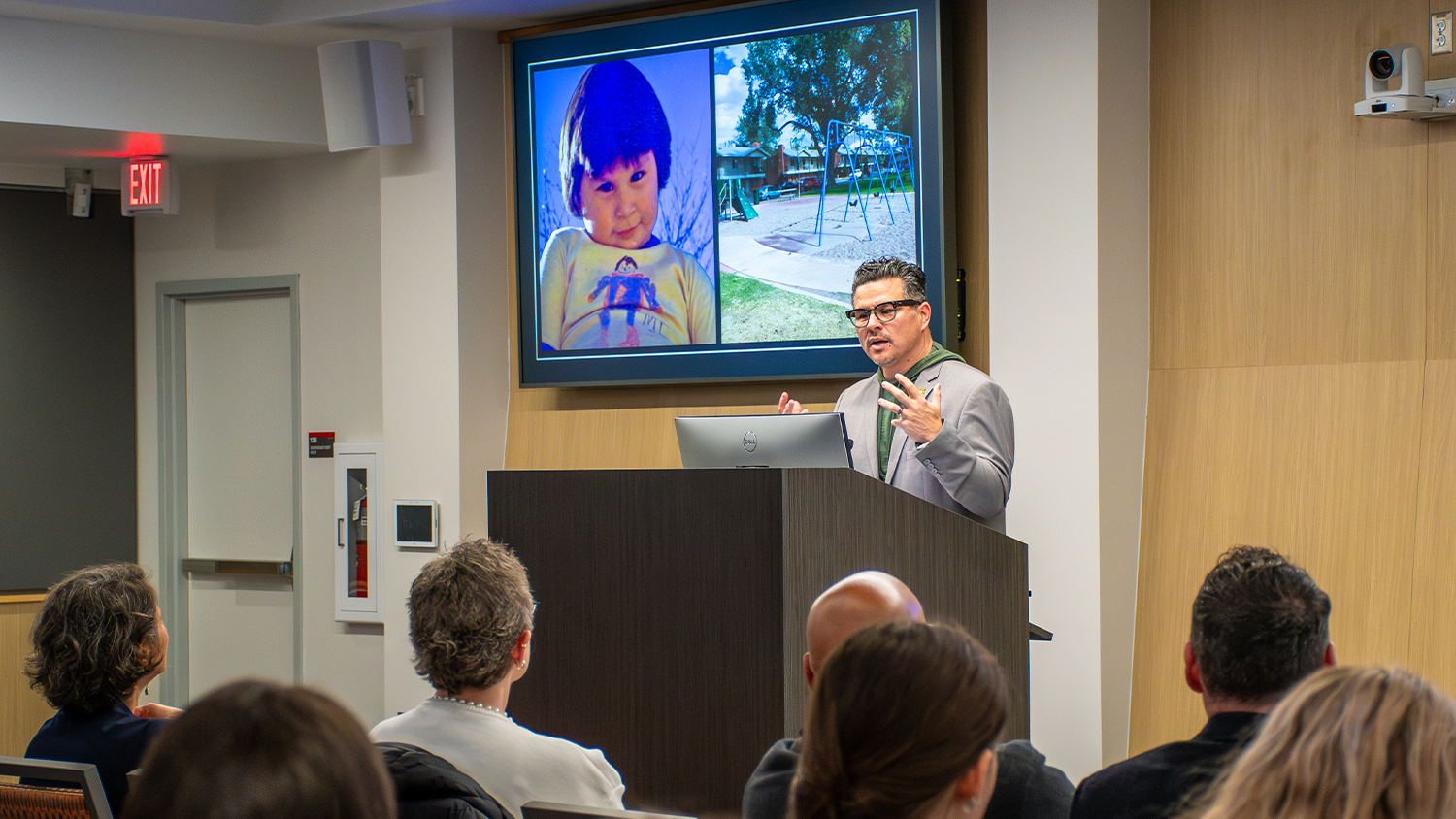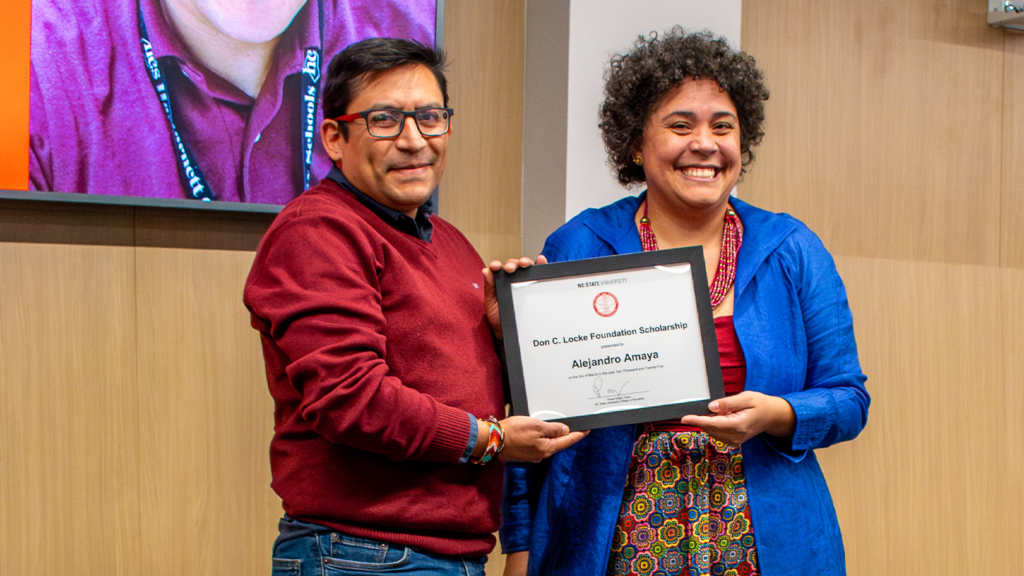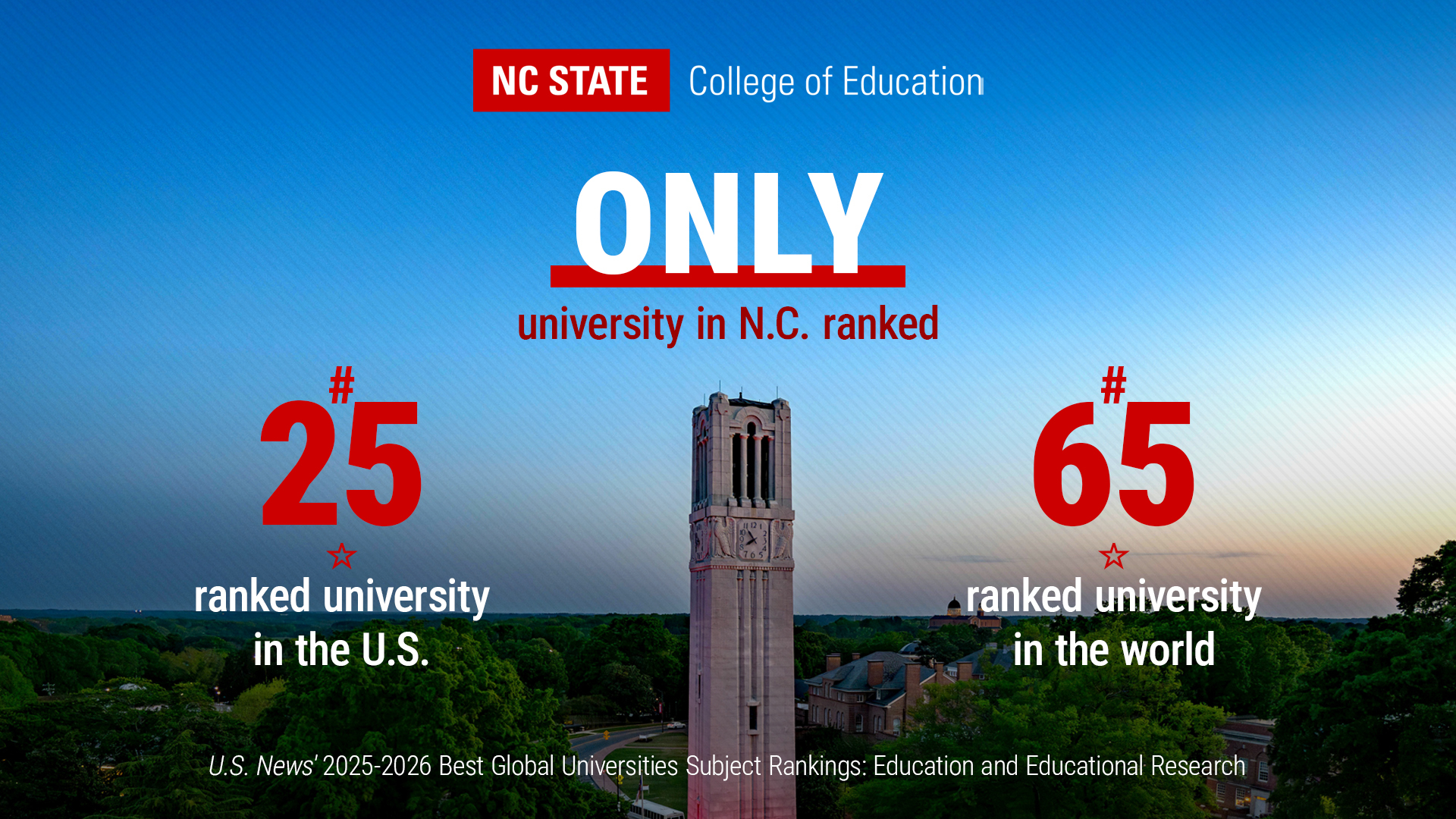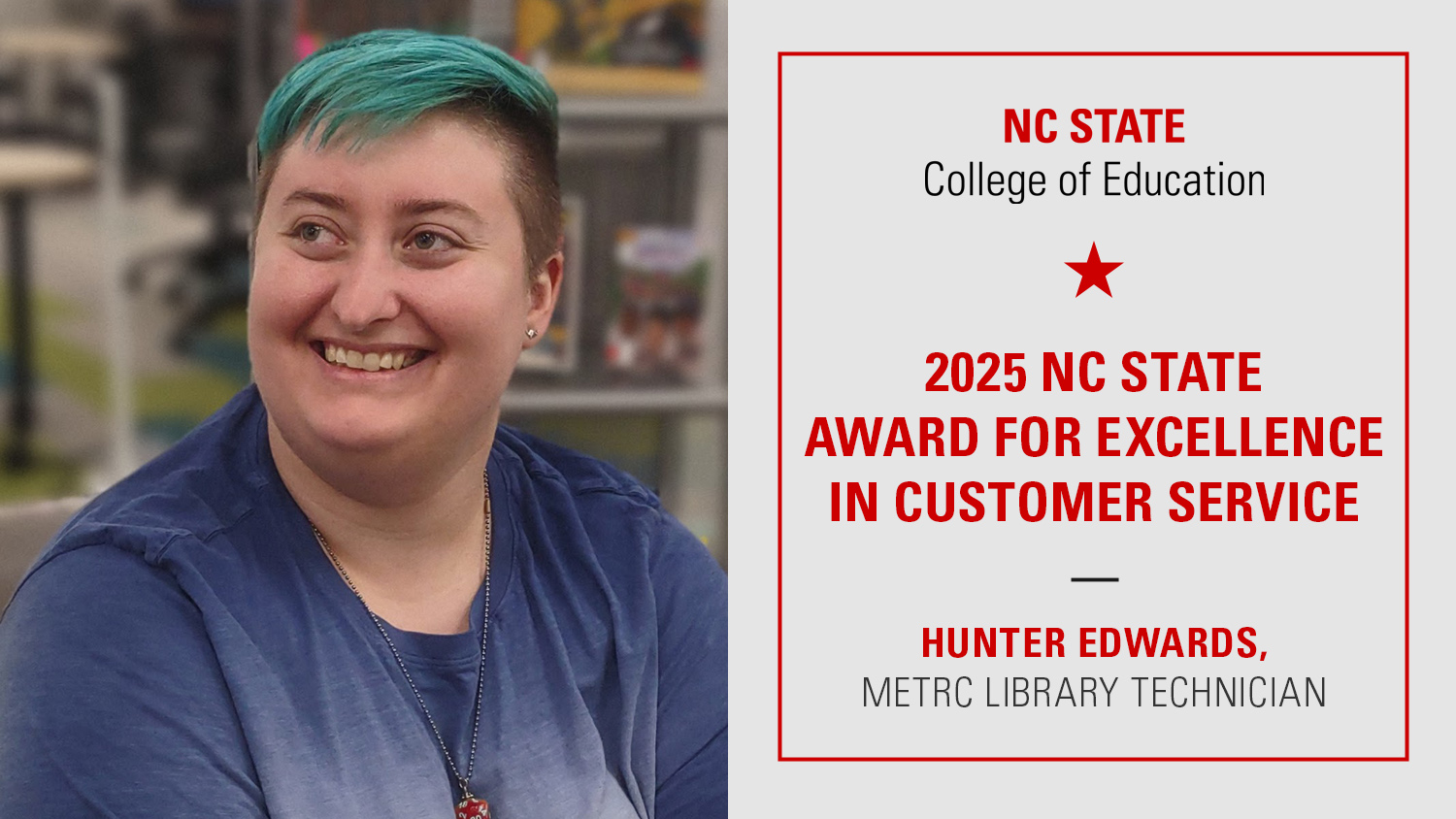‘You Can’t Wish in Outcomes’: Roberto Montoya Shares Advice During Seventh Annual Don C. Locke Symposium

Roberto Montoya grew up caught between two worlds. He lived in poverty with his high school-educated mother in Albuquerque, New Mexico, hanging out in the local park and finding escape in art, fantasy novels and hip hop. But, he also spent time with relatives on his father’s side of the family, who all held advanced degrees and introduced him to the world of academia.
Montoya, who is about to begin a role as vice president for student services at Colorado Mesa University, draws on this dissonance he felt during his childhood in his work as a scholar to find better ways to serve all students, communities, and institutions and help them succeed.
As the speaker at the seventh annual Don C. Locke Symposium, held on March 3 and hosted by the NC State College of Education, Montoya shared some advice for pre-service teachers in attendance as they prepare to serve their future students and schools, as well as for those who work with future teachers.
Value input from those who will be in the classroom: In his time working in partnership with a variety of institutions, Montoya noticed that not all invite future educators to participate in the conversation when developing the practices and pedagogies expected of future teachers. However, he believes that veteran educators can learn something from those new to the field.
“I’ve spent nearly 10 years teaching pre-service teachers, and there’s so much that we can learn and model from the ways we get to learn and interact with them,” he said. “It’s so often that we do this kind of work, that we prescribe policies, practices and procedures and rarely tap into the knowledge that [future teachers] bring and acknowledge the ways in which you are all going to be impacted by these decisions.”
Expand definitions of community: The school community, Montoya said, has a lot to gain if it looks outside the walls of the classroom, particularly to elderly residents who have decades of experience they can share with youth.
“In my community, where I come from, we say that when elders die, it’s like a library burning down,” Montoya said. “I’ve been in so many classes with my in-service teachers and say ‘Why don’t you invite some grandparents in here who can animate history?’”
Plant seeds for growth: Montoya compared efforts and initiatives for student success to supermarket flowers, saying that while they may look good at first, they won’t last long because they don’t have roots. So, he encouraged future educators to think of their work with students as engaging in the hard work of cultivating their own garden—planting seeds that will take root and grow and develop over time.
“You can’t wish in outcomes. No matter what you do, you have to work it in. The only way you can do that is by planting seeds … but, we also have to know that not everything will grow,” he said. “Think of every lesson, every student, every opportunity, everything that you assign as a seed.”
Teachers are artists: Finding success in working with students, Montoya said, is like painting a mosaic. Teachers work to blend elements together to make a complete picture and must always think ahead to the next piece. But, sometimes, the piece doesn’t come out as expected and needs to be started again.
“I think that we have to think of this work more as artists. Think of your classrooms, think of your students as mosaics, not as linear equations,” he said. “Sometimes you’ve got to scrape that canvas and start over. But that doesn’t mean you didn’t learn anything.”
Doctoral Student Alejandro Amaya Receives Don C. Locke Award

Alejandro Amaya, a doctoral student in the NC State College of Education’s Department of Teacher Education and Learning Sciences, received the Don C. Locke Multicultural and Justice Award during the symposium. The annual award honors the legacy of Distinguished Professor Emeritus Don C. Locke by recognizing a doctoral student who embodies his commitment to multiculturalism, justice and advocacy. Amaya’s work focuses on illuminating the rights and voices of Indigenous people. He also serves as treasurer for both the Latine Graduate Student Association and the Bilingual Education Student Organization.
Last year’s recipient of the award, Maria Heysha Carrillo Carrasquillo, presented Amaya with the award. “As the 2024 recipient of this same honor, I feel especially privileged to pass this torch to someone whose work I’ve witnessed firsthand during our years together in the program,” she said.
- Categories:


